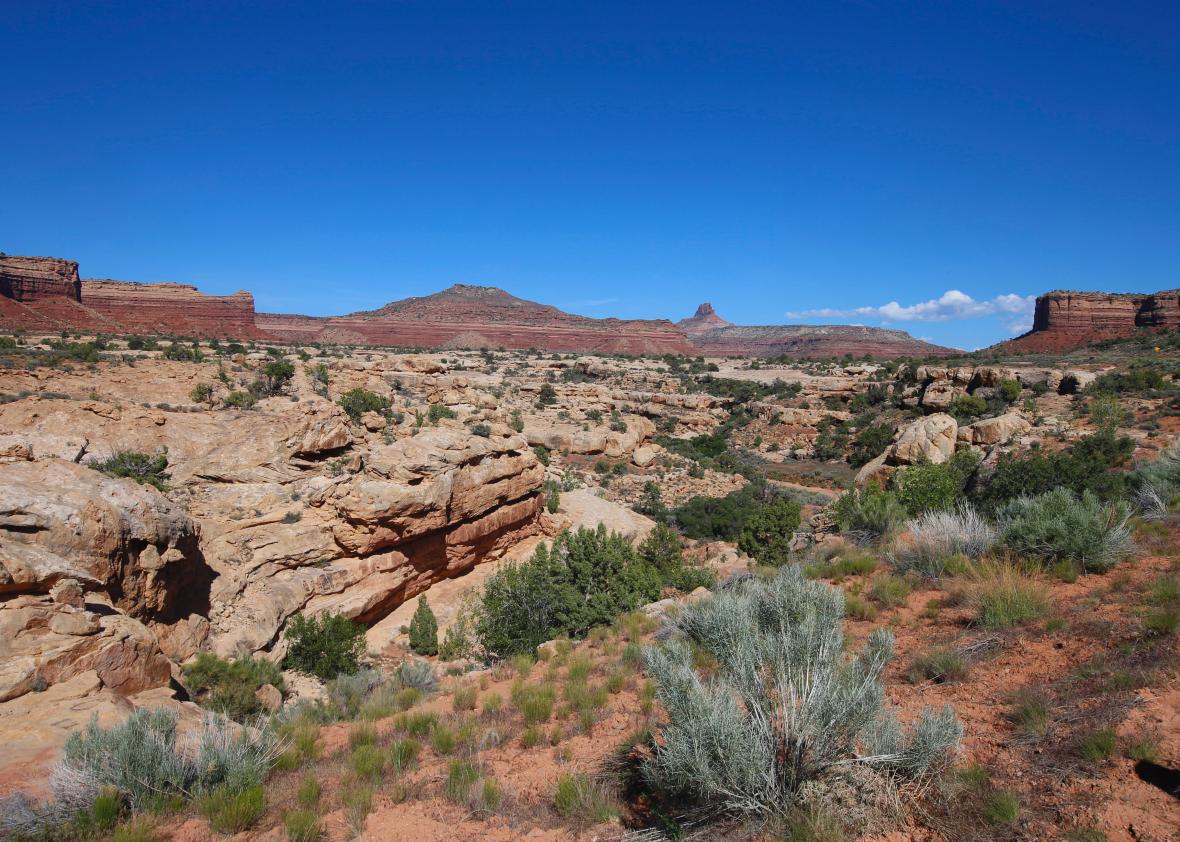Since President Trump announced plans Monday to slash the size of two Utah national monuments, Bears Ears and Grand Staircase-Escalante, outdoor apparel company Patagonia hasn’t been quiet about its feelings.
Under the President’s decision, in 60 days, more than two million acres of previously protected land will be open to mining and other operations. While a number of outdoor retailers expressed disappointment at the president’s order, Patagonia turned things up to 11. The company made its website and social media channels black, emblazoned with the brief, powerful headline: “The President Stole Your Land.” And on Wednesday, the company joined a number of lawsuits to fight Trump’s order.
This isn’t the first time the ethically-minded company has butted heads with government officials. Earlier this year, Patagonia, along with other outdoor brands Arc’teryx, Polartec, REI, and the North Face, banded together against Utah’s Republican governor Gary Herbert. Herbert and the state’s congressional leaders already had made it a priority to roll back the national monument protections President Obama had allotted to Bears Ears. Galvanized by Patagonia’s 78-year old founder Yvon Chouinard, the retailers pulled their participation from the traditionally Utah-based Outdoor Retailer show, an event that garners $45 million in revenue for the state annually. Starting next month, the trade show will be held in Boulder, Colorado, instead. Patagonia spokeswoman Corley Kenna said that the company has been “fighting for these lands for decades, so that hunters, fishers, hikers and everyone else can use them and help us protect them.”
And the California-based retailer has been clear about its reasoning for why it thinks Trump’s move is illegal: It both oversteps the president’s level of authority and removes important protections from lands local Native Americans tribes consider sacred. “Protecting public lands is a core tenet of our mission and vitally important to our industry, and we feel we need to do everything in our power to protect this special place,” Patagonia CEO Rose Marcario wrote in an explanation in Time.
A large number of social media followers applauded Patagonia’s stand against Trump.
Patagonia is doing what many Americans have been doing all year and wish the Democratic party had the guts to do: Fight back against the Trump administration. U.S. citizens have been calling, writing, and emailing to their representatives in Washington to share their opposition to a variety of issues, including plans to replace the Affordable Care Act and eliminate Net Neutrality. And they’ve had varying degrees of success. Patagonia, unlike those constantly contacting our representatives, might have a voice that our government will listen to: a voice with corporate money behind it.
Secretary of the Interior Ryan Zinke dismissed Patagonia’s behavior as just a marketing ploy. “Not one square inch was stolen. The federal estate remains intact,” Zinke said in a call with reporters when questioned about Patagonia’s accusation. “I think it’s shameful and appalling that they would blatantly lie in order to gain money in their coffers.”
If it is a marketing ploy, it’s a good one. Patagonia’s Dec. 4 tweet announcing its intentions has more than 62,000 retweets and 82,000 likes, including numerous people pronouncing their loyalty to the brand. But the company is getting its fair share of criticism as well. Some voice that there’s already too much federal control in the state. “The federal government owns nearly 65 percent of Utah,” one Instagram commenter in support of Trump’s move writes, “when is enough, enough?” Others complain that the retailer should just stay out of politics.
Patagonia has a vested interest in keeping public lands like Bears Ears and Grand Staircase-Escalante public: It’s some of the outdoor playgrounds where many of its customers like to play. With fewer places to hike, camp, or fish, there could be less need for clothing that addresses those activities. Patagonia’s CEO is open about what the company stands to gain from its intervention with these monuments. But the bottom line is that these lands don’t have a voice, and the people who want to see these beautiful landscapes preserved for future generations don’t have one either. Patagonia does. While its legal efforts in protecting these monuments will take years to unfold—and may not end in the company’s favor—it’s the only option there is. Patagonia is one of the few entities with the pocketbook to see this thing through.
